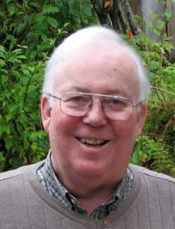
Michael G. Harpold began his 35-year career in the U.S. Immigration and Naturalization Service (INS) as a border patrol inspector on the Mexican border. Later in his career while stationed at Bakersfield, California, he met César Chávez. Their paths crossed because Chavez believed that illegal border-crossers were a threat to his efforts to build a union for farmworkers. Harpold served two years in Vietnam with the U.S. Agency for International Development and, after returning to the INS, became an officer of the employee’s union, making frequent appearances before congressional committees testifying on proposed immigration legislation and the INS budget. Harpold served five years in the U.S. Army and won a competitive appointment to West Point. He holds a bachelor’s degree from California State University at Fresno and attended Golden Gate University School of Law in San Francisco.
|
From the New York Times:
Setbacks for Farmworkers Published: March 21, 2011 To the Editor: Re “Itinerant Life Weighs on Farmworkers’ Children” (news article, March 13): Corporate agriculture has never believed that it was responsible for the welfare of farmworker families, forcing the extra services needed by migrants on local communities and federal and state governments. In the 1960s and ’70s, César Chávez came close to achieving real improvements in farmworkers’ lives by organizing them. The costs of better wages and health plans were passed on to consumers as a very modest increases in prices. The improvements in living standards that Mr. Chávez won for his members proved short-lived. The United States failed to protect farmworkers from ruinous competition from the flow of ever-more desperate workers from outside its borders. The recent trend of allowing corporations to bring in seasonal workers is in effect a repeat of the Bracero Program, which was abolished in 1964. It is adding to the plight of families already here and trying to establish a life in America. Michael G. Harpold Ketchikan, Alaska, March 13, 2011 The writer was a Border Patrol officer and worked for the Immigration and Naturalization Service. |
|
